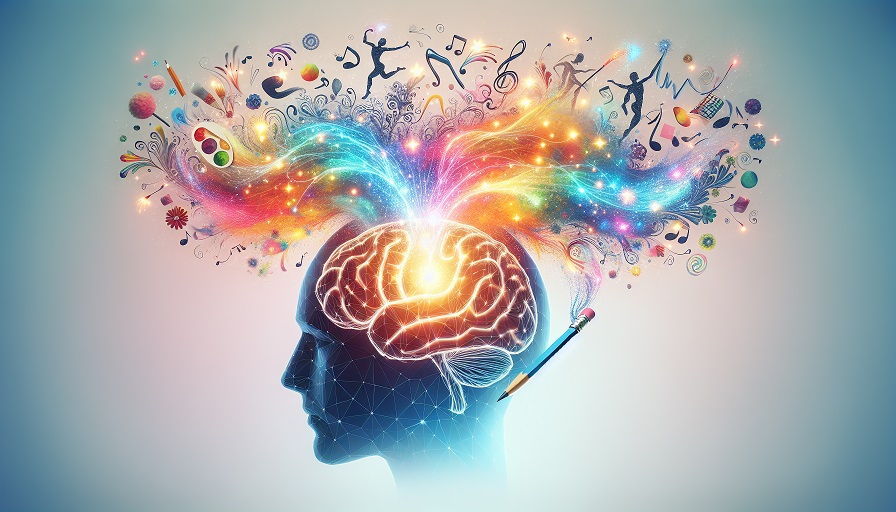
Yes, intermittent fasting can improve mental clarity by promoting metabolic changes that enhance focus, increase neurotrophic factors like BDNF, reduce inflammation, and optimize energy utilization in the brain.
Contents
What Is Intermittent Fasting?
Intermittent fasting (IF) is an eating pattern that cycles between periods of eating and fasting. Popular formats include:
- 16:8 – Fasting for 16 hours, eating during an 8-hour window
- 5:2 – Eating normally for 5 days, restricting calories for 2
- Alternate-day fasting – Fasting every other day
While initially used for weight loss, IF has gained attention for its cognitive and neurological benefits – particularly the claim that it boosts mental clarity and focus.
Why Mental Clarity May Improve During Fasting
Several physiological and neurological mechanisms explain the link between fasting and enhanced cognitive function:
1. Ketone Production
During fasting, the body shifts from burning glucose to burning fat, producing ketones (especially beta-hydroxybutyrate). These molecules are a highly efficient fuel for brain cells and are associated with improved cognitive performance, reduced brain fog, and heightened mental energy.
2. BDNF (Brain-Derived Neurotrophic Factor)
Fasting increases the expression of BDNF, a protein that supports neurogenesis (the formation of new neurons), synaptic plasticity, and overall brain resilience. Higher BDNF levels are linked to improved memory, mood, and mental performance.
3. Lower Insulin and Reduced Brain Inflammation
Chronic insulin elevation can impair cognitive function. Fasting helps regulate insulin sensitivity and reduces systemic inflammation, including in the brain, which may contribute to clearer thinking and reduced mental fatigue.
4. Enhanced Autophagy
Fasting promotes autophagy – a cellular “clean-up” process that removes damaged cells and proteins. This helps maintain brain health and may prevent cognitive decline over time.
Scientific Evidence Supporting Fasting and Brain Function
- National Institute on Aging (2015): Found that intermittent fasting improved cognitive function and increased BDNF levels in both animals and humans.
- University of Toronto (2018): A 12-week fasting protocol improved verbal memory performance in healthy older adults.
- Johns Hopkins University: Researchers noted that fasting boosts alertness, reaction time, and learning efficiency, likely due to adaptive stress responses that improve brain performance.
Subjective Experiences: The “Fasting High”
Many intermittent fasters report a noticeable uptick in mental clarity, particularly late in the fasting window (12+ hours). This may feel like:
- Improved focus and sustained attention
- Decreased brain fog or lethargy
- More efficient problem-solving or verbal fluency
- Greater emotional regulation and patience
While some of this may be due to metabolic shifts, psychological effects – like increased mindfulness or routine discipline – may also play a role.
Considerations and Cautions
Despite the benefits, fasting isn’t ideal for everyone. Consider the following:
- Low blood sugar: Can impair focus if fasting isn’t well-adapted.
- Stress response: Fasting is a metabolic stressor. For some, it may increase anxiety or disrupt sleep.
- Nutrient intake: Skipping meals without proper planning can lead to deficiencies.
- Contraindications: Individuals with eating disorders, certain medical conditions, or on specific medications should consult a doctor first.
Tips to Maximize Mental Benefits of Fasting
- Stay hydrated during the fast – dehydration mimics brain fog
- Begin fasting in the evening to sleep through the first hunger wave
- Combine fasting with light exercise for a further BDNF boost
- Avoid high-carb or sugary meals before and after the fast to maintain mental steadiness
Yes, intermittent fasting can improve mental clarity. Through ketone production, BDNF enhancement, reduced inflammation, and cellular clean-up, fasting shifts the brain into a high-efficiency state that many describe as mentally sharp and focused. While it may not be suitable for everyone, well-managed fasting protocols offer a promising tool for boosting brain performance – without the need for supplements or stimulants.

